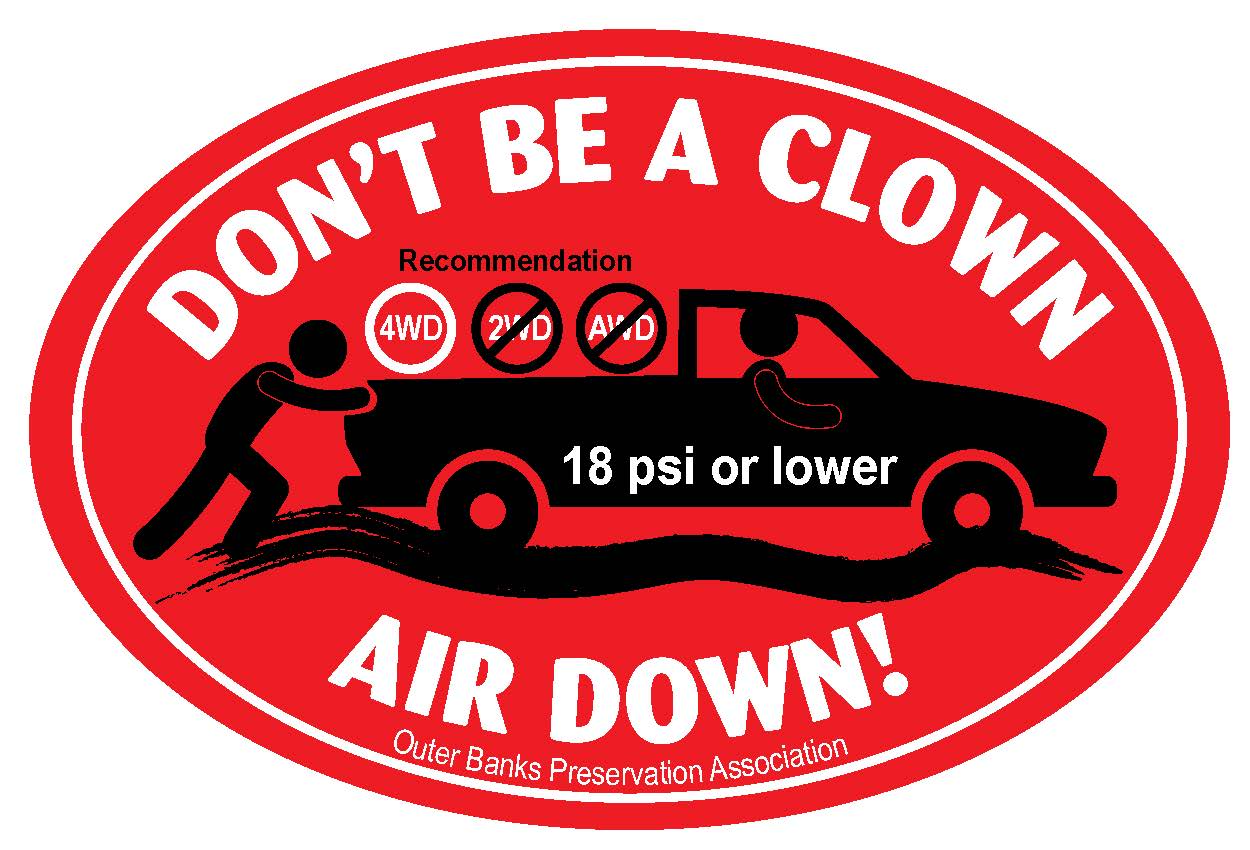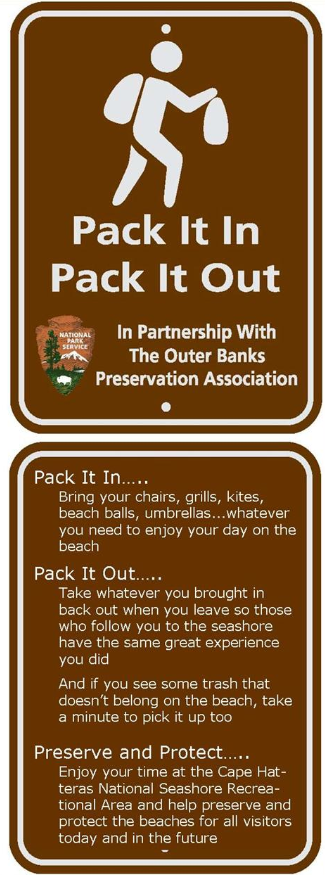The effect of excessive beach closures on the residents of Hatteras and Ocracoke Islands will be devastating. For several years now, the OBPA has worked hard to try and represent the best interest of residents and visitors alike in regard to beach access issues. Our goal has been to preserve and protect what has been a part of our history, our heritage, and our culture. The island communities have flourished because of the abundance of resources our beaches have provided us, and to think of life without access to those beaches is unimaginable. Unfortunately, beach closures are nothing new to us, affecting our daily island life, and viewed as a hot issue by most residents and visitors to Hatteras, Ocracoke and Bodie Islands
Current Lawsuit "Critical Habitat "
For a second time, it has been necessary to file a lawsuit to stop the US Fish and Wildlife Service (USFWS) from declaring the points and spits of Cape Hatteras National Seashore Recreational Area (CHNSRA) critical habitat for wintering piping plover. (The "Critical habitat" designation could close or heavily restrict ORV and pedestrian access for the rest of the year when nesting season closures are not in effect.)
Thanks to our membership, a coalition of supporters, fundraisers, and donations we have been able to retain legal representation to assist in this fight once again. To date we have spent over $119,000 in a lawsuit against USFWS in regard to the re-designation of "Critical Habitat for wintering piping plovers" and to which Defenders of Wildlife are the interveners. On February 4, 2010 our attorneys filed a brief with the court showing that USFWS has still not done their job in re-designation of habitat for wintering piping plovers, as required by law. USFWS, with Defenders of Wildlife, will have a chance to file a rebuttal to our suit, after which the judge may require oral arguments.
We are confident our attorneys are well prepared and have been representing our best interests as was evident in the last case against USFWS in which the judge ruled in our favor. If we win this case, we will once again be entitled to recoup a portion of the monies spent in defending our position.
Current Lawsuit "Critical Habitat "
For a second time, it has been necessary to file a lawsuit to stop the US Fish and Wildlife Service (USFWS) from declaring the points and spits of Cape Hatteras National Seashore Recreational Area (CHNSRA) critical habitat for wintering piping plover. (The "Critical habitat" designation could close or heavily restrict ORV and pedestrian access for the rest of the year when nesting season closures are not in effect.)
Thanks to our membership, a coalition of supporters, fundraisers, and donations we have been able to retain legal representation to assist in this fight once again. To date we have spent over $119,000 in a lawsuit against USFWS in regard to the re-designation of "Critical Habitat for wintering piping plovers" and to which Defenders of Wildlife are the interveners. On February 4, 2010 our attorneys filed a brief with the court showing that USFWS has still not done their job in re-designation of habitat for wintering piping plovers, as required by law. USFWS, with Defenders of Wildlife, will have a chance to file a rebuttal to our suit, after which the judge may require oral arguments.
We are confident our attorneys are well prepared and have been representing our best interests as was evident in the last case against USFWS in which the judge ruled in our favor. If we win this case, we will once again be entitled to recoup a portion of the monies spent in defending our position.
DEIS
The Draft Environmental Impact Statement (DEIS) has been released by the National Park Service (NPS). The DEIS is the document that unveils the measures proposed in managing both ORV use and protection of wildlife within CHNSRA. We are currently working on a position statement that will address aspects of the DEIS that we feel will negatively impact Congress' original intent in creating CHNSRA and its recreational areas.
Once the DEIS is released by the Park Service, it must be sent for approval to the Environmental Protection Agency (EPA), after which there will be a public comment period of 60 days. Please take advantage of this public comment period and rationally voice your concerns about how the DEIS will impact you directly. Also, look for upcoming dates of meetings and rallies sponsored by OBPA and its coalition in several different locations during the public comment period. OBPA strongly encourages you to contact friends, family members and business contacts to get involved in this process.
Audubon, Defenders of Wildlife, and Southern Environmental Law Center have all been working very hard to shut down our beaches and change the faces of Hatteras, Ocracoke, and Bodie Islands forever. Are they really concerned about a few nesting birds or do they want human involvement removed from the Cape Hatteras National Seashore Recreational Area altogether? YOU BE THE JUDGE!
The Draft Environmental Impact Statement (DEIS) has been released by the National Park Service (NPS). The DEIS is the document that unveils the measures proposed in managing both ORV use and protection of wildlife within CHNSRA. We are currently working on a position statement that will address aspects of the DEIS that we feel will negatively impact Congress' original intent in creating CHNSRA and its recreational areas.
Once the DEIS is released by the Park Service, it must be sent for approval to the Environmental Protection Agency (EPA), after which there will be a public comment period of 60 days. Please take advantage of this public comment period and rationally voice your concerns about how the DEIS will impact you directly. Also, look for upcoming dates of meetings and rallies sponsored by OBPA and its coalition in several different locations during the public comment period. OBPA strongly encourages you to contact friends, family members and business contacts to get involved in this process.
Audubon, Defenders of Wildlife, and Southern Environmental Law Center have all been working very hard to shut down our beaches and change the faces of Hatteras, Ocracoke, and Bodie Islands forever. Are they really concerned about a few nesting birds or do they want human involvement removed from the Cape Hatteras National Seashore Recreational Area altogether? YOU BE THE JUDGE!


